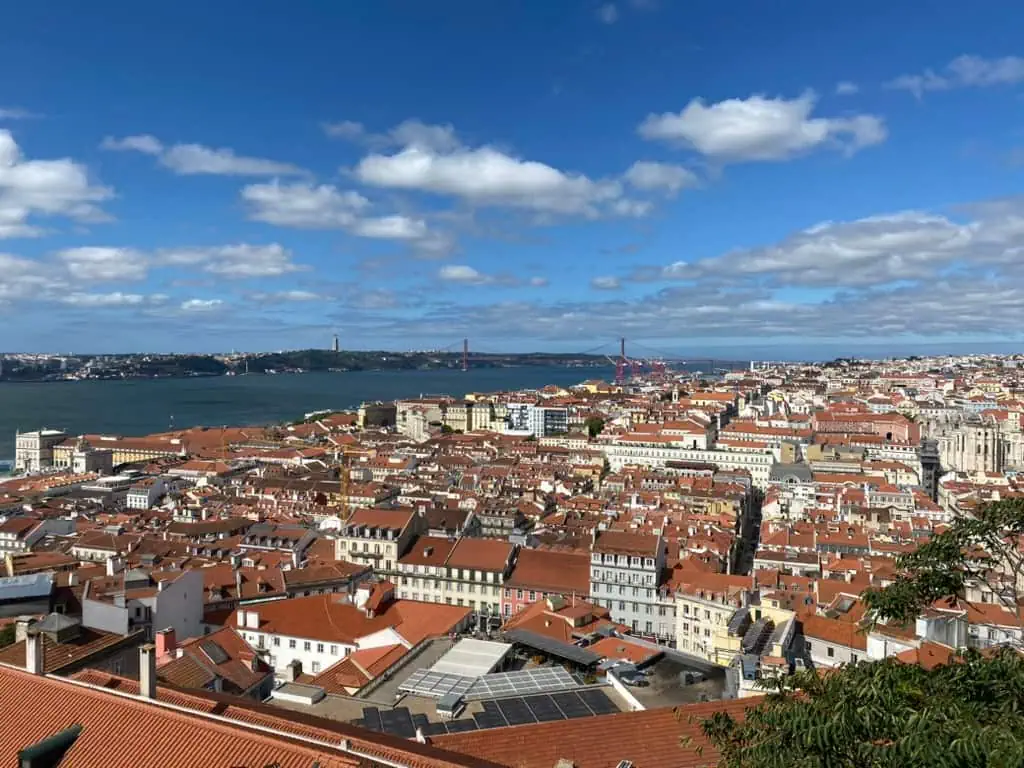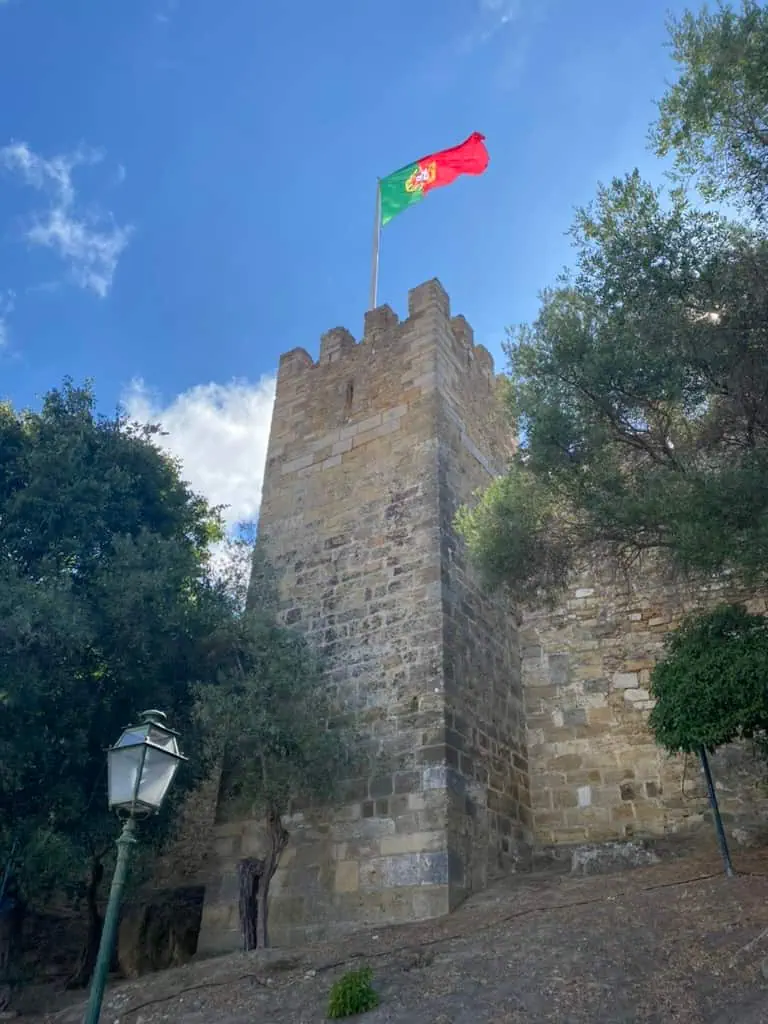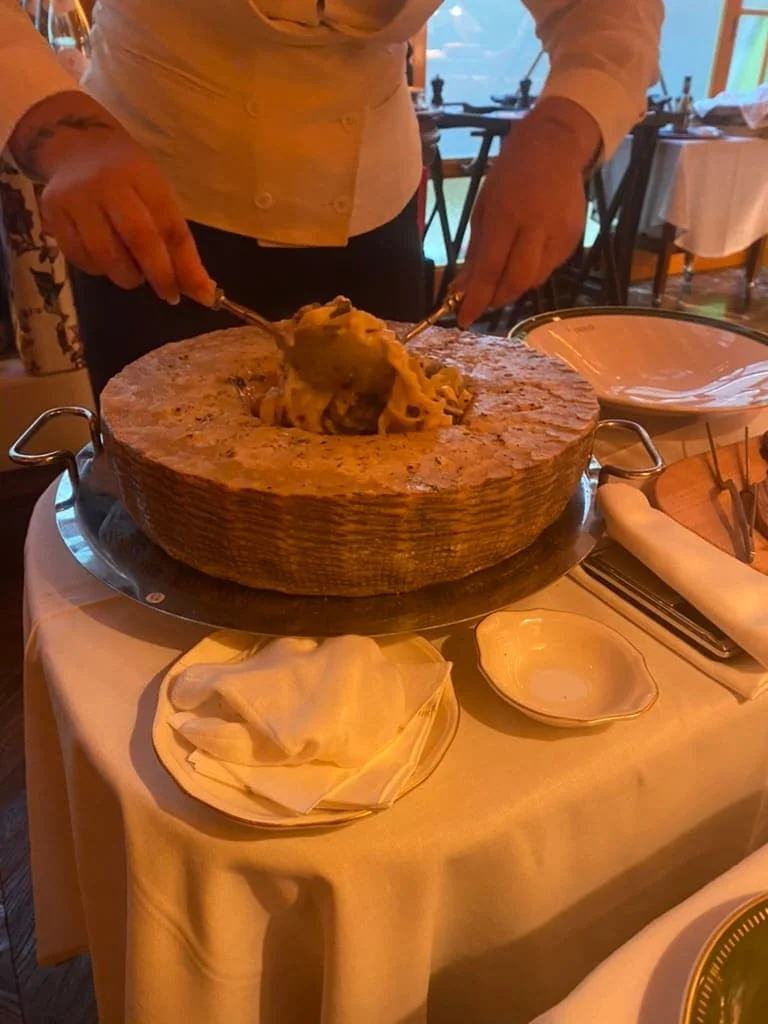Do You Need Cash in Lisbon? What You Need to Know
I spent 5 weeks working remotely from Lisbon last year and can give you the ins and outs of paying there so you can answer the question, Do you need cash in Lisbon?
Spoiler alert: thankfully you can almost always pay with card in Lisbon, but I would carry a little cash just in case.
Do You Need Cash in Lisbon?
You don’t necessarily need to have much cash while visiting Lisbon, but I recommend you carry some with you. Here’s what you need to know when it comes to paying in cash and card in Lisbon, Portugal.
Can I use a credit card in Lisbon?
The good news is most restaurants, shops, and tourist activities in Lisbon will take credit and debit cards.
The whole time I was in Lisbon, I very rarely encountered times where I needed to have cash.
That said, it’s a good idea to have some cash on you just in case, but know that you can largely pay with card and won’t need to use cash in Lisbon very often.

Which credit cards are accepted in Lisbon?
Anywhere that accepts credit cards should take international Mastercard and Visa cards. If you have an American Express card or a Discover card, it may be more difficult to find sellers that accept those. Some will take those cards, but don’t necessarily count on it.
How often will I need cash in Lisbon?
You won’t need cash in Lisbon very often, but when exactly do you need cash in Lisbon? Here are a few scenarios where you may need cash:
- Small purchases that cost only a few euros
- Public transit (not always but sometimes)
- Markets
- Smaller or older stores and restaurants, especially if they’re less touristy
- Tips for tour guides
- Ginjinha cherry liquor out of a local’s front door 😉

How much cash do I need in Lisbon?
The amount of cash you need in Lisbon depends on your plans and size of your group. Generally, I recommend having around 50 euros on hand just in case. If you’re traveling as a family, perhaps carry a little more, but I wouldn’t carry too much.
Personally, I had about 100 euros on me and that was more than enough for my entire 5 weeks in the city. Towards the end of my stay, I realized I had spent so little cash in Lisbon that I had to force myself to start using cash more instead of card to get rid of it before flying home.
Is it better to use one payment method over another?
The Portuguese prefer cash, especially if you’re buying something that’s only a few euros. It’s generally preferred for tipping as well so you can ensure the person who served you really gets the tip.
That said, if a seller accepts both cash and card, feel free to use whichever payment method is more convenient for you.
How can I get cash in Portugal? Is it easy to find an ATM?
ATM is the best way to get cash in Lisbon. I recommend once you get into the city to grab some cash from an ATM if possible rather than at the airport. Airport ATMs generally tend to charge higher fees, which is why you’ll want to avoid them if you can.
ATMs are located all over the city. Ideally use an ATM attached to a bank, like Santander, Novo Banco, or Caixa Geral de Depósitos (CGD). Avoid Euronet ATMs as they will charge a large fee.
Note that generally Portuguese ATMs will allow you to take out a maximum of 400 euros per day. If you prefer to pay more in cash, keep this in mind.

When taking out cash or making a purchase on credit or debit card, should I select to pay in euros or USD?
Almost every time you pay for something internationally, you’ll get a prompt asking if you want to pay in the local currency—euros in this case—or USD. Always select the local currency.
Your bank will give you the best exchange rate, so you want them to handle that versus an institution abroad. Also, if you select USD, that financial institution will often charge you an additional fee for making the conversion.
You’ll see this at ATMs, when you’re paying for meals, shopping, and pretty much everywhere.
Is it safe to carry large amounts of cash in Lisbon?
While Lisbon is considered one of the safest cities in the world, there’s a risk of pickpocketing anytime you encounter a crowded area. With that in mind, I’d avoid carrying large amounts of cash on you at any time.
Generally, I’d exercise caution with your belongings in the following scenarios in Lisbon:
- At any popular lookout points when they’re busy
- On the tram or subway if it’s crowded
- Any other crowded settings
While you’re out, I’d also never leave your phone on a table or purse on the back of a chair. Always keep your belongings on you to be safe.
Additional Frequently Asked Questions
Here are some answers to frequently asked questions when it comes to making payments in Portugal and using cash vs. credit card.
Should I get cash from the U.S. before I travel to Portugal?
It’s always worth getting some cash before your trip if you can from your bank. That way you can focus on enjoying your time when you first arrive in Lisbon without having to worry about the logistics of getting cash.
That said, if you can’t get cash ahead of time, don’t sweat it. I personally usually just wait to get cash until I arrive at my destination because my bank at home doesn’t have any branches where I live.
Is it safe to pay with credit card in Lisbon?
Paying with credit card in Lisbon is just as safe as paying with card back at home. Contactless payments are very common in the city, helping keep your card more secure than inserting it into the terminal.
Arguably, paying primarily in card is safer than with cash in that you won’t be carrying large amounts of money with you.
Do restaurants in Lisbon take cash?
Restaurants will take cash in Lisbon, so if you’d prefer to pay that way, you can usually count on being able to do so.
Can I pay taxis with a credit card in Lisbon?
Many taxi drivers will accept card but not all. If you plan to take taxis instead of Ubers, then I would definitely have some extra cash on hand in case your driver doesn’t take card.
Can I pay with credit card in other parts of Portugal?
Outside of bigger cities and tourist hot spots like Lisbon, Porto, and Lagos, you may find yourself in situations where you need to pay more with cash. If you're planning to travel more extensively throughout other parts of Portugal, I recommend having more cash on you.
How to avoid foreign transaction fees in Portugal?
To avoid foreign transaction fees, either pay with cash or use a card that does not charge foreign transaction fees. Generally, most travel credit cards won’t charge foreign transaction fees.
Here are some of my favorite credit cards with some highlights on each:
—Chase Sapphire Preferred: $95 annual fee, 3x points on dining, 2x points on travel, 5x points on travel purchased through Chase Travel
—Chase Sapphire Reserve: $550 annual fee, 5x points on flights, 10x points on hotels and car rentals purchased through Chase Travel
—Capital One Venture X: $395 annual fee, 5x miles on flights booked through Capital One travel, 10x miles on hotels and rental cards booked through Capital One travel, 2x miles on all other purchases
One thing I love about Capital One is that none of their cards charge foreign transaction fees. Even if you have one of their more basic cards that doesn’t charge an annual fee, they won’t charge you foreign transaction fees.
In addition, a bonus with Capital One and Chase cards is they don’t require you to notify them of your travel plans before your trip.
At a restaurant, do you pay at the table in Portugal?
Typically when dining, you’ll pay at the table or sometimes at the front counter. At the table, if you pay with card, your waitress or waiter will bring a card reader over and will handle the transaction right there.
Do you tip waiters in Lisbon?
Unlike the United States, tipping isn’t expected. That said, when dining out you should generally plan to tip around 5-10% or round up the bill. It’s also common to tip taxi drivers and any tour guides.

Where to Stay in Lisbon
Lisbon has no shortage of options when it comes to finding a place to stay. Here are some accommodations I recommend:
📍Budget Option: If you're looking to meet other travelers, stay at Yes! Lisbon Hostel. The hostel organizes a variety of activities and has a social atmosphere.
📍Mid-Range Option: Rossio Boutique Hotel has an incredible location close to many tourist attractions as well as public transit.
📍Luxury Option: Have you ever wanted to stay in a palace? You can at Palácio Ludovice Wine Experience Hotel. I stayed there with my mom and felt quite pampered in the beautiful space and with the free dessert and port and they gave us.
Conclusion: Do You Need Cash in Lisbon?
Now you know the answer to, Do you need cash in Lisbon? In summary, you can expect to be able to pay card for most purchases in Lisbon, but it’s a good idea to have a little cash on you for the occasional situations where card is not accepted.
Planning a trip to Lisbon? Check out my Lisbon travel guide and information on navigating language differences in Lisbon.
Planning a Trip to Portugal? Check Out These Related Posts



